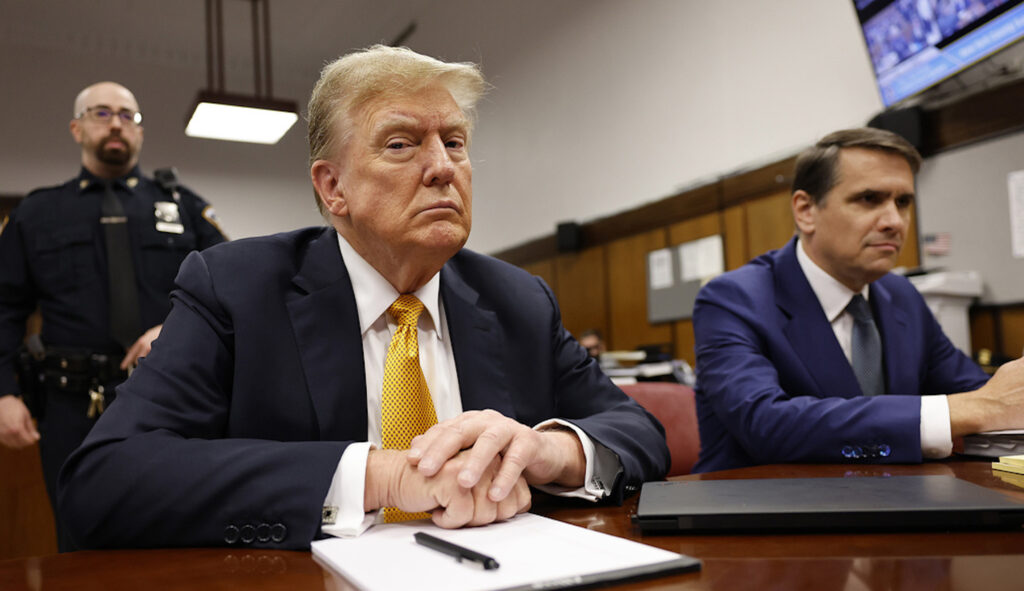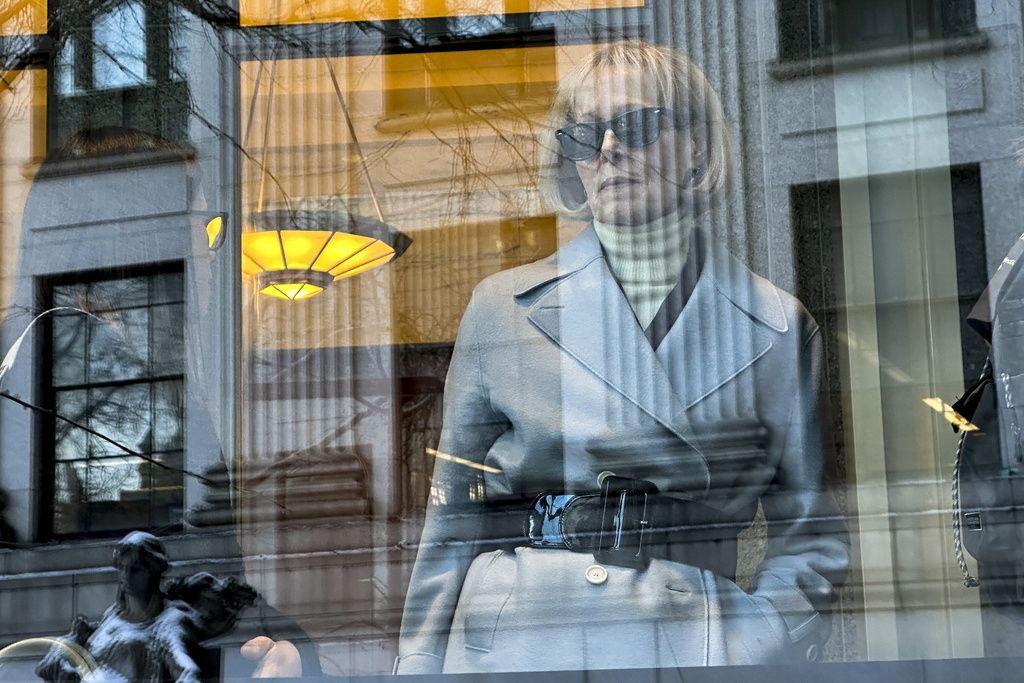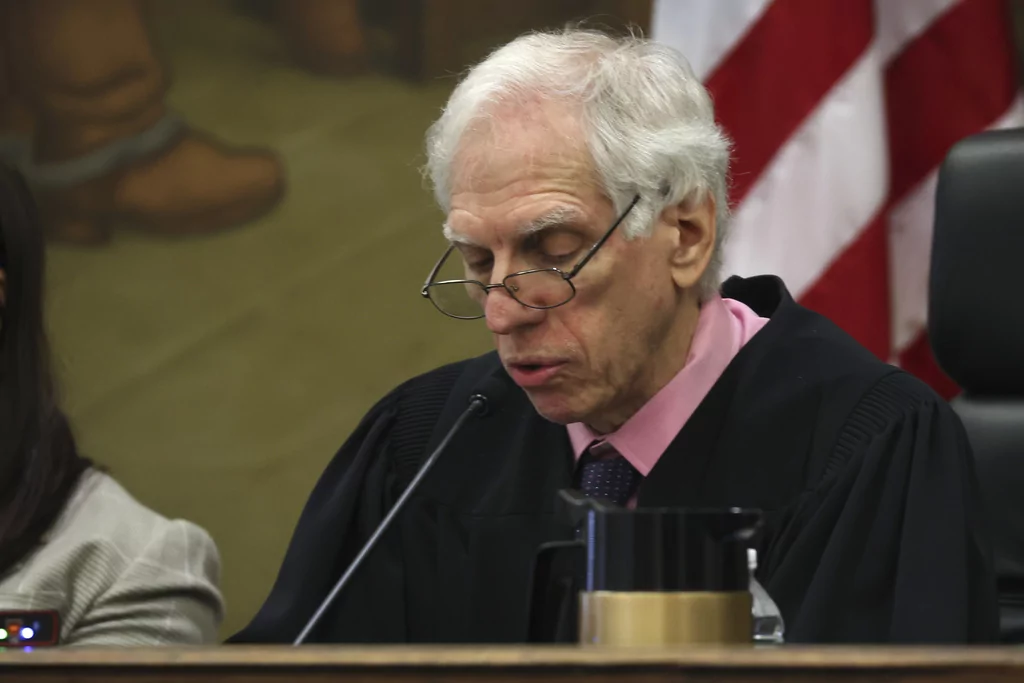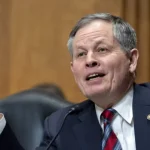
Former President Donald Trump stands a substantial risk of having to pay more than half a billion dollars in civil penalties before 2025 — whether he wins or loses the 2024 presidential election.
Against the backdrop of Trump’s four criminal cases, which bring with them the threat of years of prison time, the former president is grappling with the additional threat of two hefty civil judgments topping more than $563 million after interest, according to a Washington Examiner analysis. Even if Trump wins the election, the split screen for his potential transition back to the Oval Office could be marred by a significant decline in his net worth, legal experts said.

“It would be this kind of crazy thing unfolding with the lawyers collecting and trying to garner his real estate, or, you know, take the classic sort of collection action against a president,” Kevin McMunigal, a professor at Case Western Reserve University Law School, told the Washington Examiner.

Trump’s civil court case woes will be reignited next week when his attorneys head back to New York as part of his appeal of the $5 million May 2023 verdict in the first E. Jean Carroll case, which involves his denial of the Elle magazine columnist’s claims that he raped her in the mid-1990s. A jury found him liable for sexual assault and defamation over comments he made during his first presidential term.
Carroll also won a second defamation case carrying an $83 million judgement a result of additional comments Trump made after his presidency, and Trump has posted a bond of $91 million to stay the enforcement of that judgement.
Later this month, Trump’s attorneys will head to the New York Appellate Division, an intermediary appeals court, in a bid to throw out Judge Arthur Engoron’s ruling in a separate civil case that found he inflated the value of his assets to achieve favorable bank loans and insurance premiums. Factoring pre-judgment and post-judgment interest, Trump owes $475 million in that case, according to a calculator provided by the Associated Press.

Tallying the three civil cases together, Trump could wind up owing approximately 15% of his net worth, which stands at approximately $4.2 billion, if he fails to convince appeals courts to toss out the various judgments or reduce the amounts owed on appeal.
Here are the stakes for Trump’s civil cases ahead of the 2024 election and beyond:
Will Trump owe anything before Election Day?
Although collections could begin on his civil penalties as soon as later this year, legal experts say the appeals over these fees are likely to continue at least until after the Nov. 5 election, as Trump still has the ability to appeal an unfavorable ruling to the New York Court of Appeals, the state’s highest court.
For example, in the civil fraud case, oral arguments are scheduled for the last week in September, and a ruling may not arrive until at least a month later.
The “appeals are ongoing and, most likely, will not be decided before the November election,” said Michael O’Neill, vice president of the Landmark Legal Foundation. “Therefore, the possibility that Trump has to ‘pay’ either judgment before the November election is remote.”
Still, it’s not completely certain that Trump would even get the opportunity to have his appeal heard by the state’s highest court, according to McMunigal, who said the court is not obligated to grant oral arguments on appeal.
“You don’t automatically, typically have a right to go to the highest court. That’s true with the U.S. Supreme Court. It’s true with almost every top court,” McMunigal said.
However, Daniel Karon, a law professor at the University of Michigan Law School and Ohio State University, said he could foresee Trump’s appeal reaching the state’s top court.
“It’s discretionary, but a case like this will likely get accepted,” said Karon, noting that Trump could attempt to argue presidential immunity shields him.
Would becoming president-elect change anything?
Legal experts indicated the civil cases have the potential to wreak even greater havoc against the former president than his criminal cases, as there is little legal precedent that would prevent authorities from collection even if he is the president-elect.
Unlike the Supreme Court’s July 1 ruling in Trump v. United States, which amounted to a medium-term boon for his defense in the two criminal cases brought by special counsel Jack Smith, legal precedent is more clear when it comes to whether presidents can face civil damages for actions that took place outside of their presidency, which is the case with the civil fraud trial and at least one Carroll trial.
For example, the 1997 case Clinton v. Jones case found that then-President Bill Clinton could be held civilly liable for actions taken before his term began.
“I believe the principles outlined in this case would apply and that President Trump, even if elected, would be obligated to satisfy the judgments against him assuming the decisions are not reversed on appeal,” O’Neill told the Washington Examiner.
Because Carroll’s initial lawsuit known as Carroll I was filed in 2019, Trump could potentially seek to argue on appeal that Jones applied to his case because the allegedly defamatory remarks occurred while Trump was still president, though it remains to be seen whether there would be much success in that approach.
As for whether winning the election would slow down the courtroom movement of his civil appeals, O’Neill said the timing and pace of these challenges is likely to be unaffected.
Truth Social could save Trump from severe loss
Although Trump risks losing a significant chunk of his net worth as it currently stands if he pays every last penny of the judgments, his financial position today is stronger due to the recent transition of his Truth Social into a public company.
Trump theoretically could leverage his 114.75 million shares in the social media company to help offset his impending legal burdens, though the upshot is that it could create further instability in the market value of Truth Social as a whole, as the company has already seen turbulence in its valuation, which in turn causes Trump’s net worth to spike or decline from time to time.
For investors, it could be viewed as a negative signal to watch the dominant stakeholder sell off his shares, as the media company recently saw price per share dip below $20 for the first time since the merger formed in the spring.
However, if Trump wants to rely on his earnings to help offset the costs, a Securities and Exchange Commission filing revealed that the lockup period that blocks him from selling shares is slated to expire by Sept. 25. So long as the price stays above $12, the lockup period could expire on Sept. 20.
More indications of Trump’s plans for his majority stake could become apparent as Sept. 26 approaches, the day that his appeal of the civil fraud verdict secured by New York Attorney General Letitia James is slated to be argued. A ruling could be returned roughly a month later, and from there either losing party could seek review at the highest court.
CLICK HERE TO READ MORE FROM THE WASHINGTON EXAMINER
James, an elected Democrat who campaigned on investigating Trump, told the Washington Examiner at the Democratic National Convention earlier this month she is “confident” in Trump’s largest judgment being upheld.
“The law was clear, he’s engaged in a patented practice of fraud. And if you or I engaged in it, you and I obviously would suffer the same fate,” James said.




